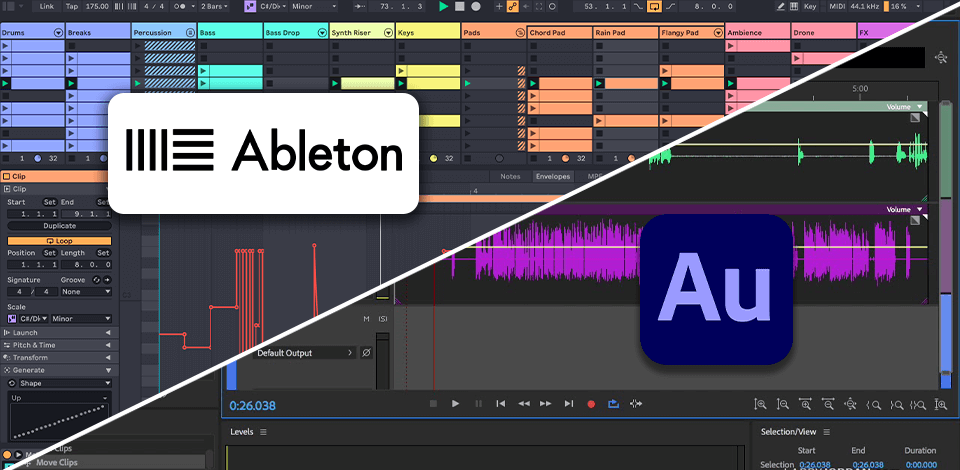
As a rookie sound design artist out of the LA area I have set Ableton Live vs Adobe Audition for tests to get into the core of pros and cons of two. A preferred choice for some types of my tasks has turned out to be Adobe Audition especially where I need a higher audio editing precision.
On the other side, Ableton gives out more of a production and live performance type of software. It welcomed me with a great differentiating session view which lets me play around easily along with a simple sound and loop-based composition workflow.
|
|
Adobe Audition  |
Ableton  |
|
|
|
|
Rating |
4.5/5 70 review |
4/5 210 reviews |
|
|
|
|
Best For |
Podcasting, video editing, and audio restoration |
Electronic music production and live performances |
|
|
|
|
Free Trial |
✔️ |
✔️ |
|
|
|
|
Starting Price |
$22.99/mo |
$99 |
|
|
|
|
Platforms |
Windows, Mac |
Windows, Mac |
|
|
|
If I were to summarize the results of the Ableton vs Adobe Audition battle, I’d say that Ableton is better for beginners because of the intuitive interface and its focus on music production while Adobe Audition is perfect for professionals who need advanced audio editing features.
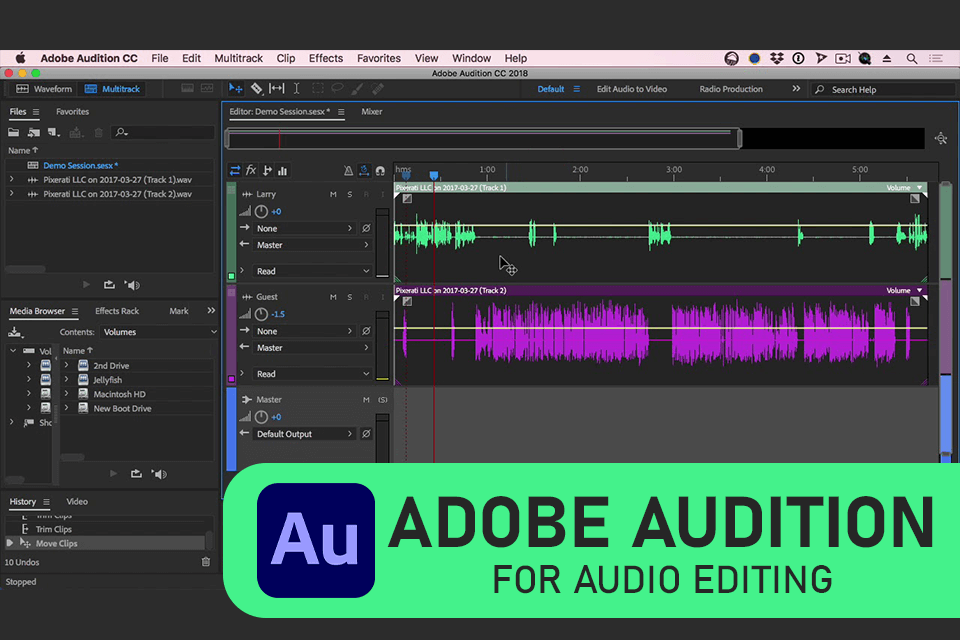
Adobe Audition has fit my audio editing and mixing routine like a glove. Its pleasantly user-friendly interface, alongside the large toolset, turned the process of recording, editing, and mixing audio tracks into a walk in the park.
Effects like EQ, delay, and reverb as well as the multitrack view let me easily enhance my audio clips to get the sound I need. Meanwhile, the audio restoration and sound synching features help me tweak my audio projects to ensure they match professional quality standards.
As a beginner who can’t yet afford fully-featured audio editing software, Adobe Audition is definitely the best software I could have gotten. I appreciate its affordable subscription plan and convenient integration with other Adobe applications.
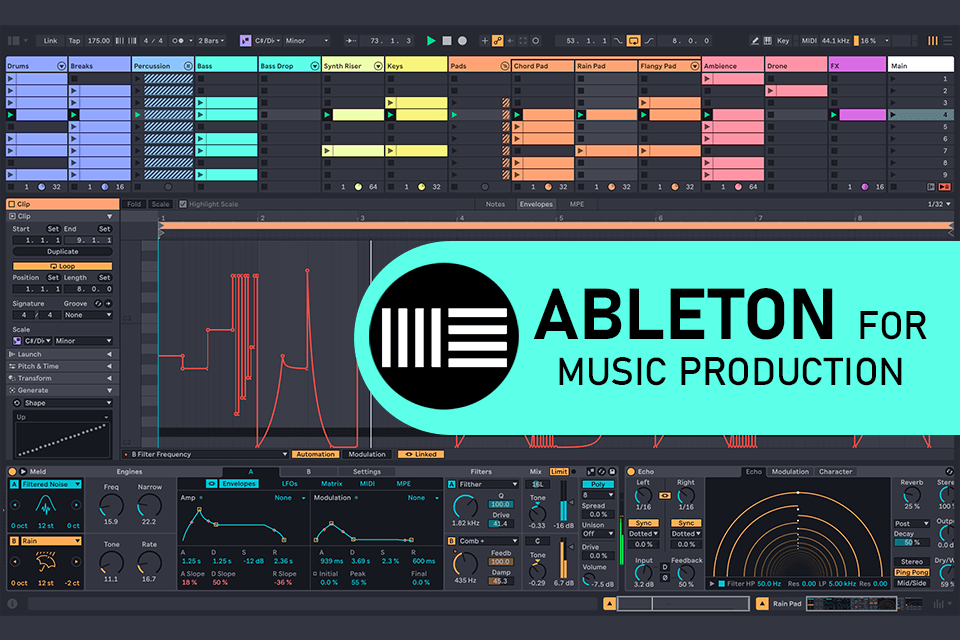
Ableton offers a useful set of features that I need for my recording, editing, and mixing work. It’s among the best software I used to record live performance sets since it employs a non-linear layout and has performance-oriented tools that allow me to experiment with various music elements.
Moreover, this DAW for beginners has a suite version with a lot more instruments, effects, and sound effects that can help you unleash your full creative potential. This tool is highly popular among the pros in the industry and its intuitive UI ensures even a newer user like me can learn how to use it without any difficulties.
Overall, I believe Ableton provides the tools you need to take your sound design skills to the next level.
|
|
Adobe Audition  |
Ableton  |
|
|
|
|
Multitrack Editing |
✔️ |
✔️ |
|
|
|
|
Audio Effects |
✔️ |
✔️ |
|
|
|
|
MIDI Support |
❌ |
✔️ |
|
|
|
|
Live Performance Features |
❌ |
✔️ |
|
|
|
|
Noise Reduction Features |
✔️ |
✔️ |
|
|
|
|
Restoration Tools |
✔️ |
❌ |
|
|
|
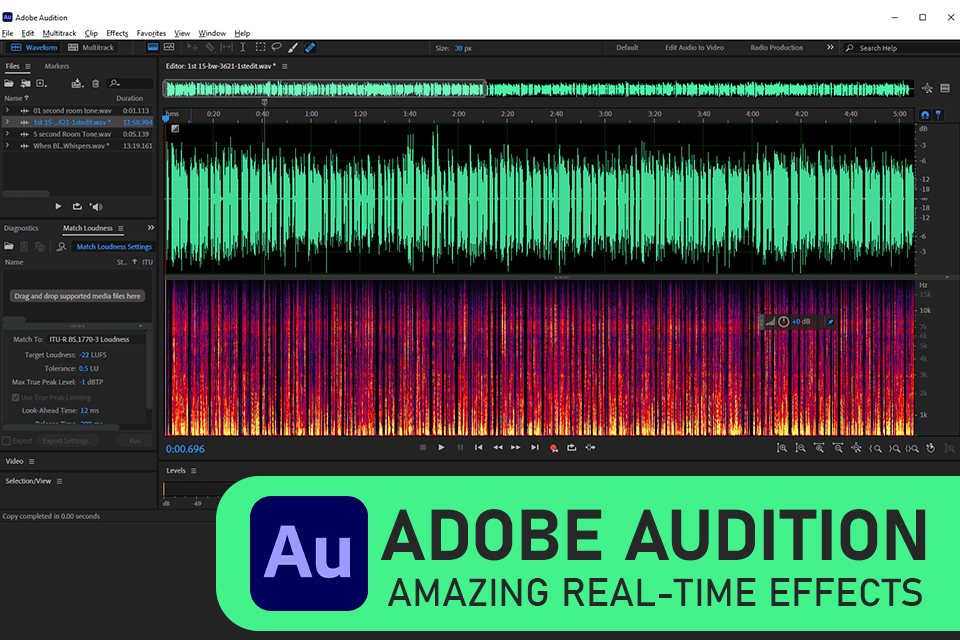
Adobe Audition is perfect for professional editing and sample audio restoration. It offers suitable features for all levels of audio projects while also providing useful add-ons that I’ve used when working on more complex creations.
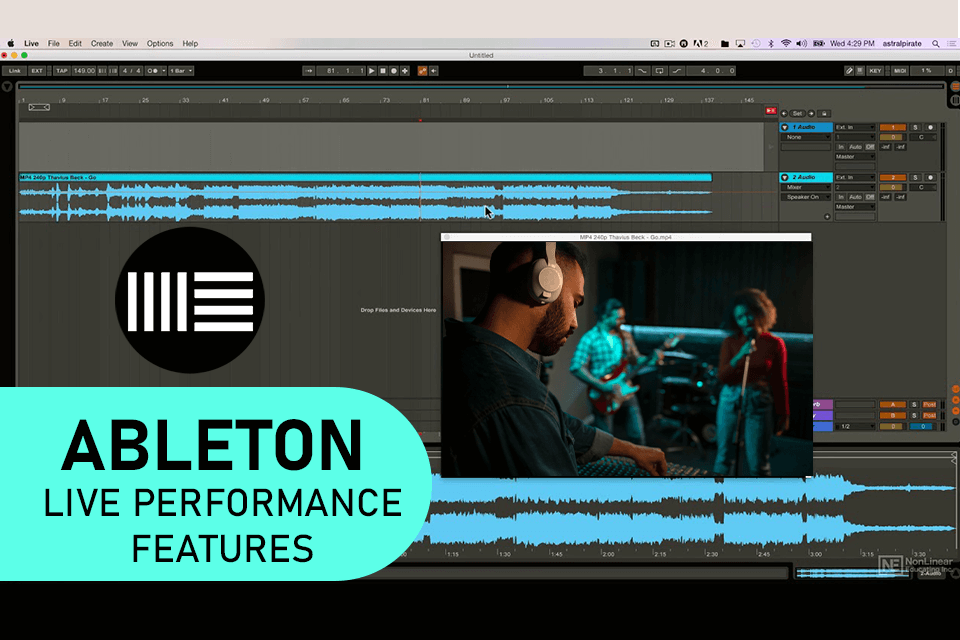
On the other hand, Ableton is best suited for music production and live performances. It has a huge sound library at its disposal, powerful editing and manipulation tools, and has also allowed me to benefit from MIDI control support. Apart from that, it gives its users an integrated session view, which is useful when trying to experiment with different tools and effects to achieve a more creative result.
Overall, both these DAW software options have their place in my workflow, depending on the specific project and requirements I’m tackling at the moment.
| Pros | Cons | ||||
|---|---|---|---|---|---|
|
Adobe Audition |
Perfect vocals due to pitch correction
|
It does not support VSTi plugins
|
|
|
|
|
|
Perfect sound cleaning and enhancement |
Pricey and compatibility restrictions |
|
|
|
|
|
Improves performance by balancing and normalizing |
|
|
|
|
|
|
Multi-track editing features |
|
|
|
|
|
|
Superb integration with other Adobe programs |
|
|
|
|
| Pros | Cons | ||||
|---|---|---|---|---|---|
|
Ableton |
Simple workflow and navigation when handling music projects
|
Expensive, a rather steep learning curve
|
|
|
|
|
|
Add and merge tracks on a linear timeline |
Rigid learning process |
|
|
|
|
|
Create tracks by assembling a grid of short clips |
|
|
|
|
|
|
Ready-made instruments and effects |
|
|
|
|
|
|
Can be customized for a specific purpose |
|
|
|
|
|
|
Adobe Audition  |
Ableton  |
|
|
|
|
Starting Price |
$22.99/mo |
$99 |
|
|
|
|
Full Features |
❌ |
$439 |
|
|
|
|
|
Adobe Audition  |
Ableton  |
|
|
|
|
|
✔️ |
✔️ |
|
|
|
|
Chat |
✔️ |
❌ |
|
|
|
|
Social Media |
✔️ |
✔️ |
|
|
|
|
YouTube |
✔️ |
✔️ |
|
|
|
|
Forum |
✔️ |
✔️ |
|
|
|
Summing up my short comparison, it's evident that both Adobe Audition and Ableton offer some useful features for amateurs like me. I should add that Adobe Audition which includes high-accurate editing and excellent recording, and audio mixing functionalities is a perfect choice as a vivid function digital audio workstation. On the other hand, Ableton is more flexible as it focuses on music production tasks as well as live performances.